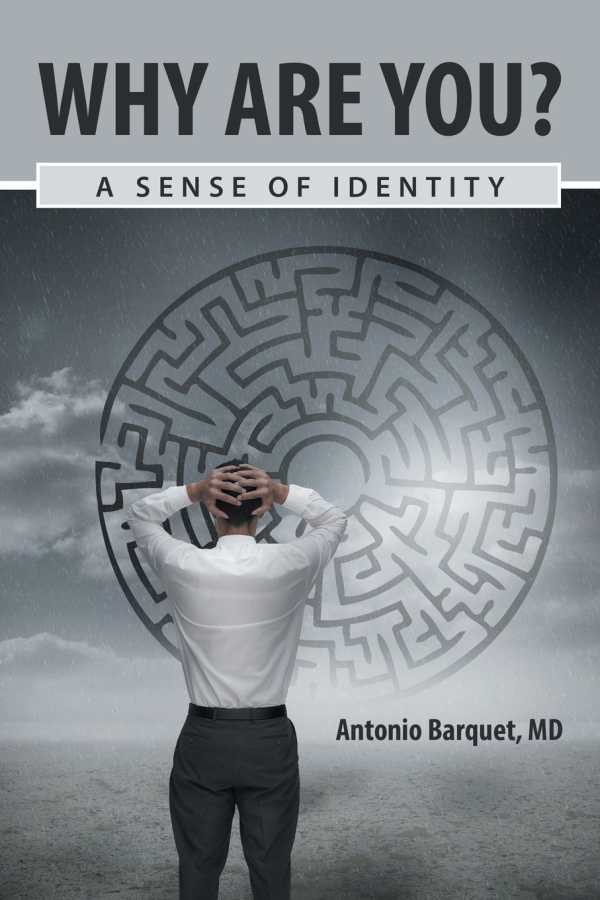Why Are You?
A Sense of Identity
Fascinating reading for anyone interested in psychology, Barquet presents a case for how and why identity forms.
Antonio Barquet does not title his study of identity Who Are You? but rather Why Are You? because to this author, it’s all about the factors that go into forming the sense of self, not so much what that self is. In ten chapters of a slim, hundred-page volume, Barquet presents a case for how and why identity forms in a human being.
“A sense of self allows an organism to define its physical boundaries and thus allow it to determine whether another organism is smaller or larger,” he says, “whether it can eat that organism or should flee from it.” It’s all about surviving, staying alive, still existing. The ultimate fear, this doctor believes, is that one won’t exist anymore. This is why many of us subscribe to religious beliefs and the idea of an afterlife, he says. The sense of self is also pliable, Barquet writes, and adapts to its environment. He spends much of the book talking about the “affective fuels” that help form identity, offering a chapter on each: social (relationships), religious (church/beliefs), intellectual (degree/career), material (food/shelter/cash), and emotional/sexual (probably self-explanatory).
Though Barquet’s degree is a medical one, this is a purely psychological study. Some Buddhist training influences his study, as well as a touch of traditional Christianity, and the author info on the back cover says he “has dealt with issues of life and death.” He has interesting theories about why teens behave the way they do (realizing their dependency on parental affection and subconsciously fearing losing it), as well as where this whole selfie thing comes from. “Technology offers a medium for the individual to get attention and reinforce the sense of self,” he writes. “Hence, the selfie is an alternative to becoming just another number in society.” He also discusses socialism and capitalism (against the backdrop of Cuba) and the interaction between them and the self.
Barquet explains homosexuality in a way that some will find controversial in today’s political climate. He says that homosexuality’s origin lies somewhere between heredity and environment, though his explanation seems to lean toward the latter. A male child, for instance, craves the attention of his father, but if he does not receive it, he may identify with (mimic, perhaps) his mother to get it, developing submissive characteristics that the father will find less threatening so that he will not react with hostility toward the child.
Barquet’s writing is clear and easy to understand, though the diagrams he includes in the book are hand-drawn and not as clear. Images generated from a simple PowerPoint would have done the trick. And the text needs an editor to address various grammatical mishaps.
All in all, whether or not you agree with Barquet’s approach and theories, he presents fascinating reading for anyone with an interest in human psychology. Barquet expresses hope for the future and encourages the practice of seeing the divinity in others as we all share this world.
Reviewed by
Billie Rae Bates
Disclosure: This article is not an endorsement, but a review. The publisher of this book provided free copies of the book and paid a small fee to have their book reviewed by a professional reviewer. Foreword Reviews and Clarion Reviews make no guarantee that the publisher will receive a positive review. Foreword Magazine, Inc. is disclosing this in accordance with the Federal Trade Commission’s 16 CFR, Part 255.


